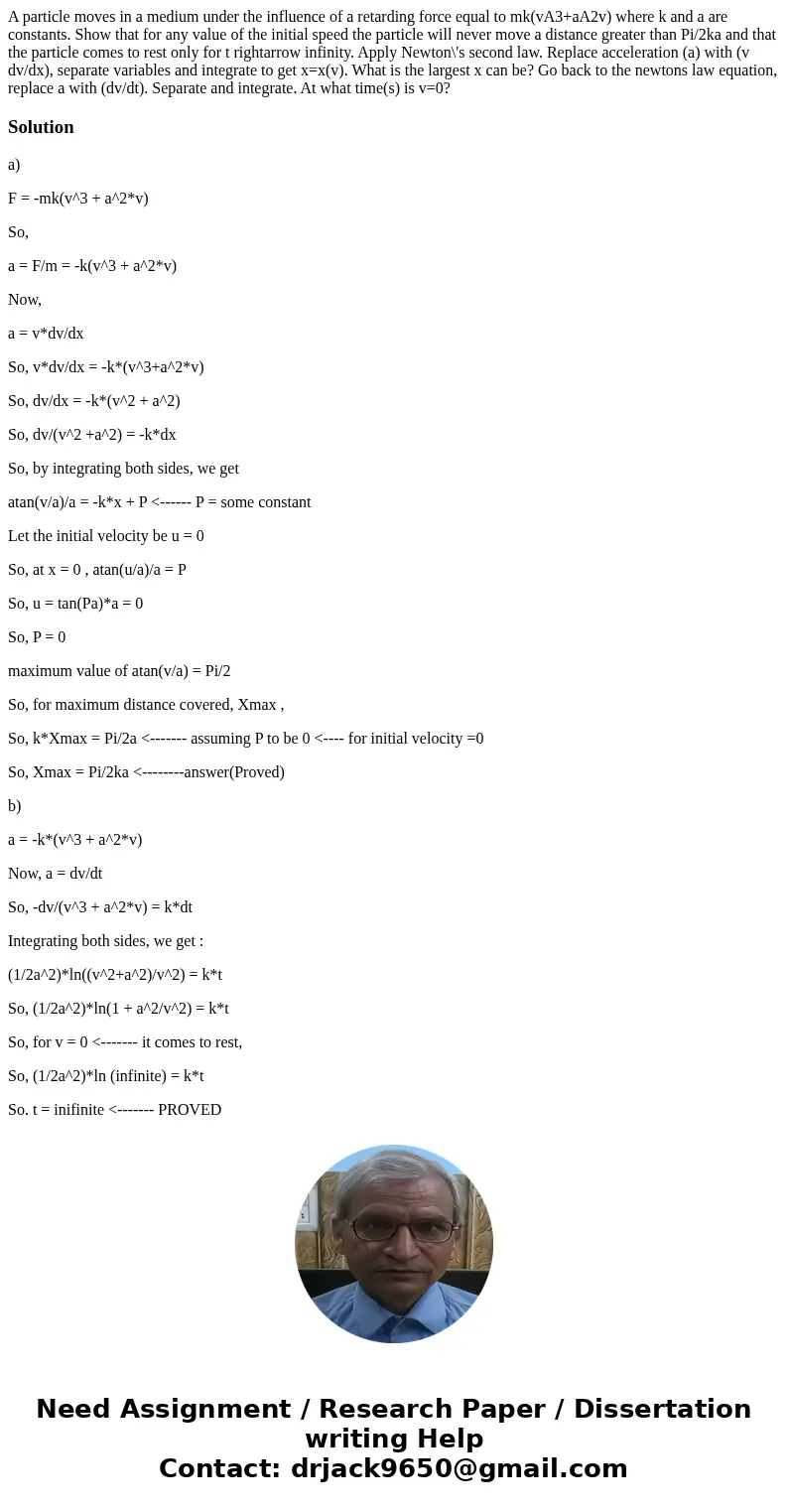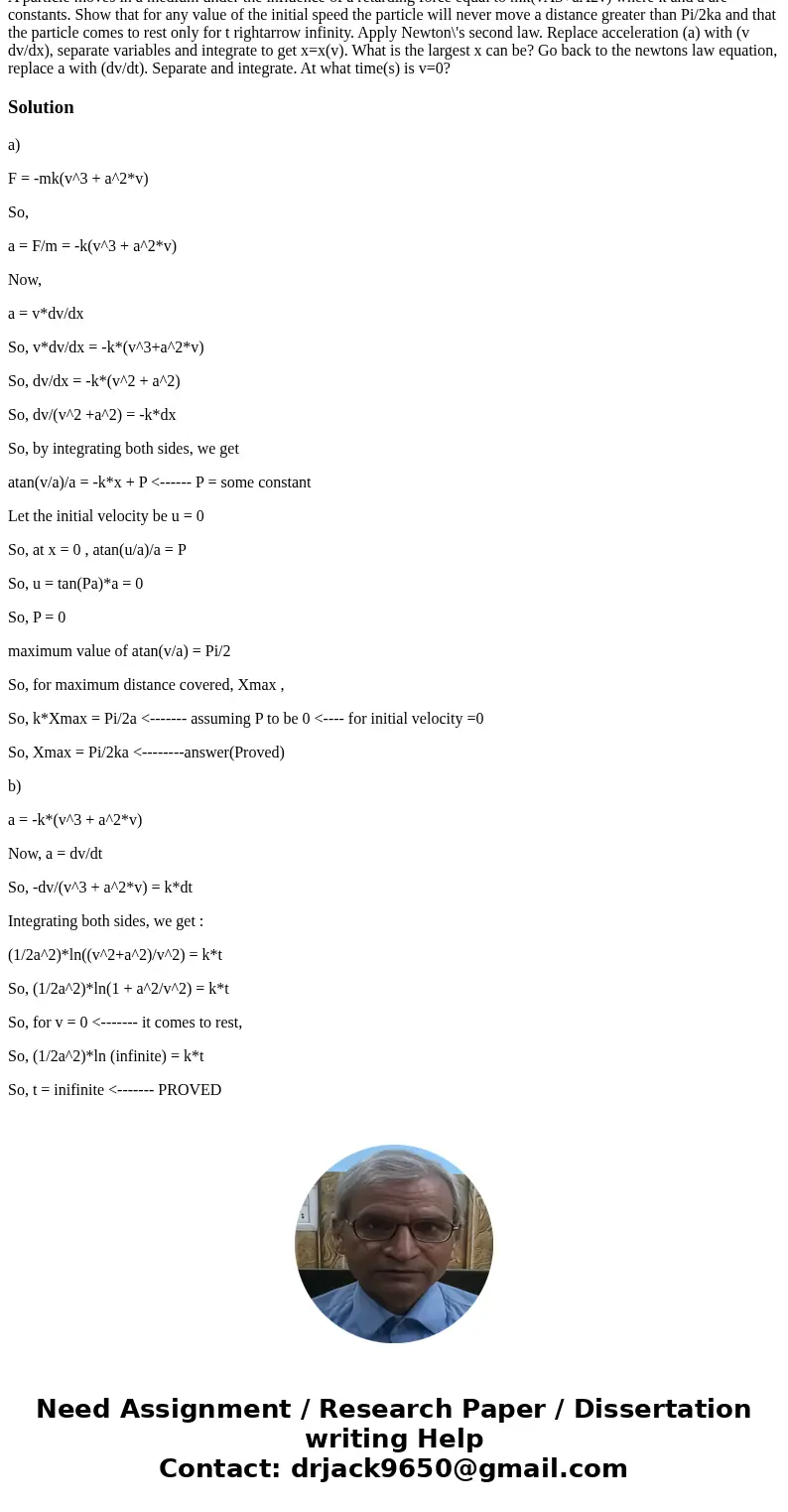A particle moves in a medium under the influence of a retard
Solution
a)
F = -mk(v^3 + a^2*v)
So,
a = F/m = -k(v^3 + a^2*v)
Now,
a = v*dv/dx
So, v*dv/dx = -k*(v^3+a^2*v)
So, dv/dx = -k*(v^2 + a^2)
So, dv/(v^2 +a^2) = -k*dx
So, by integrating both sides, we get
atan(v/a)/a = -k*x + P <------ P = some constant
Let the initial velocity be u = 0
So, at x = 0 , atan(u/a)/a = P
So, u = tan(Pa)*a = 0
So, P = 0
maximum value of atan(v/a) = Pi/2
So, for maximum distance covered, Xmax ,
So, k*Xmax = Pi/2a <------- assuming P to be 0 <---- for initial velocity =0
So, Xmax = Pi/2ka <--------answer(Proved)
b)
a = -k*(v^3 + a^2*v)
Now, a = dv/dt
So, -dv/(v^3 + a^2*v) = k*dt
Integrating both sides, we get :
(1/2a^2)*ln((v^2+a^2)/v^2) = k*t
So, (1/2a^2)*ln(1 + a^2/v^2) = k*t
So, for v = 0 <------- it comes to rest,
So, (1/2a^2)*ln (infinite) = k*t
So, t = inifinite <------- PROVED


 Homework Sourse
Homework Sourse